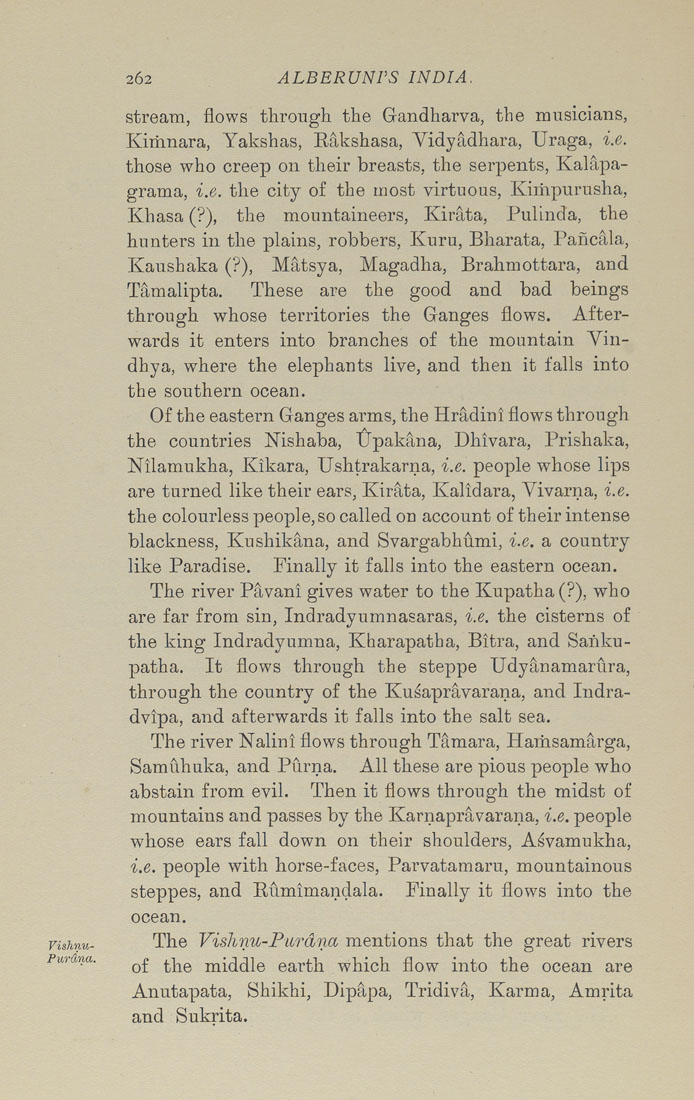Vishnu-
Purdna.
262 ALBERUNPS INDIA.
stream, flows through the Gandharva, the musicians,
Kiriinara, Yakshas, Rakshasa, Vidyadhara, Uraga, i.e.
those who creep on their breasts, the serpents, Kalapa-
grama, i.e. the city of the most virtuous, Kiihpurusha,
Khasa (?), the mountaineers, Kirata, Pulinda, the
hunters in the plains, robbers, Kuru, Bharata, Pancala,
Kaushaka (?), Matsya, Magadha, Brahmottara, and
Tamalipta, These are the good and bad beings
through whose territories the Ganges flows. After¬
wards it enters into branches of the mountain Vin¬
dhya, where the elephants live, and then it falls into
the southern ocean.
Of the eastern Ganges arms, the Hradini flows through
the countries Nishaba, tJpakana, Dhivara, Prishaka,
Nllamukha, Kikara, Ushtrakarna, i.e. people whose lips
are turned like their ears, Kirata, Kalidara, Vivarna, i.e.
the colourless people, so called on account of their intense
blackness, Kushikana, and Svargabhiimi, i.e. a country
like Paradise. Finally it falls into the eastern ocean.
The river Pavani gives water to the Kupatha (?), who
are far from sin, Indradyumnasaras, i.e. the cisterns of
the king Indradyumna, Kharapatha, Bitra, and Sahku-
patha. It flows through the steppe Udyanamarura,
through the country of the Kusapravarana, and Indra-
dvipa, and afterwards it falls into the salt sea.
The river Nalini flows through Tamara, Harhsamarga,
Samiihuka, and Purna. All these are pious people who
abstain from evil. Then it flows through the midst of
mountains and passes by the Karnapravarana, i.e. people
whose ears fall down on their shoulders, Asvamukha,
i.e. people with horse-faces, Parvatamaru, mountainous
steppes, and Rumimandala. Finally it flows into the
ocean.
The Vishnu-Burdna mentions that the great rivers
of the middle earth which flow into the ocean are
Anutapata, Shikhi, Dipapa, Tridiva, Karma, Amrita
and Sukrita.
|








